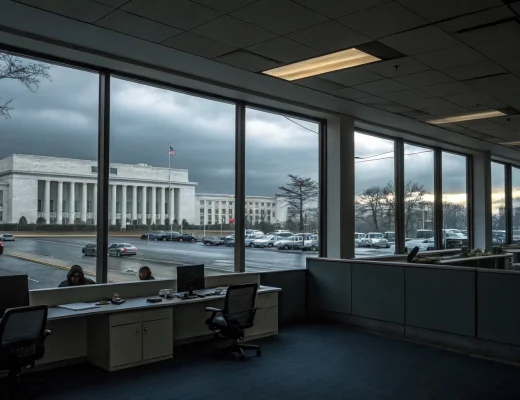The Social Security Trust Fund is facing a serious challenge. Recent reports estimate that the funds could run out in less than 10 years if Congress does not take action. This would leave beneficiaries receiving only a portion of the benefits they are owed.
The
trust funds serve as the financial reserves for the federal program that supports retirees and those unable to work due to a disability. Currently, the program pays out more each year than it takes in. This is leading to a rapid depletion of the funds.
Once the trust funds are exhausted, beneficiaries will receive only 81% of their benefits unless Congress provides additional funding. Richard Johnson, a senior fellow at the Urban Institute, believes Congress will intervene before 2034 to avoid unnecessary anxiety for beneficiaries. “If Congress does nothing, we’re going to see a significant decline in benefits,” he says.
It would create an uproar if people experienced a
benefit cut of that magnitude.
Several options could be on the table for Congress to address the issue. These include cutting benefits for higher-income individuals, expanding the taxable base, increasing the payroll tax rate, or raising the eligibility
age for retirement.
Congress urged to act on funding
Johnson believes the most sensible approach would be to increase the taxable income cap from $176,100 to closer to $300,000, then adjust it over time in line with the growth in average earnings. If Congress does not act, the consequences could be severe. The Urban Institute estimates that the poverty rate among those 65 and older would increase by about 50%, leading to significant economic hardship.
Older adults and those with disabilities rely heavily on their
Social Security benefits. For many, it accounts for half or more of their income. A 20% cut in benefits would make it difficult for them to pay for necessities.
Those currently in or near retirement likely do not need to worry about immediate cuts to benefits. Historical precedent from 1983 suggests there won’t be changes for current retirees. However, those further from retirement should anticipate some level of change.
To prepare, younger people may need to save more for retirement than they had initially planned. As the population ages, Congress must consider these looming
payments to seniors when making tax and spending decisions. Prompt and strategic action can help ensure the long-term viability of the
Social Security program and mitigate the impact on future beneficiaries.







